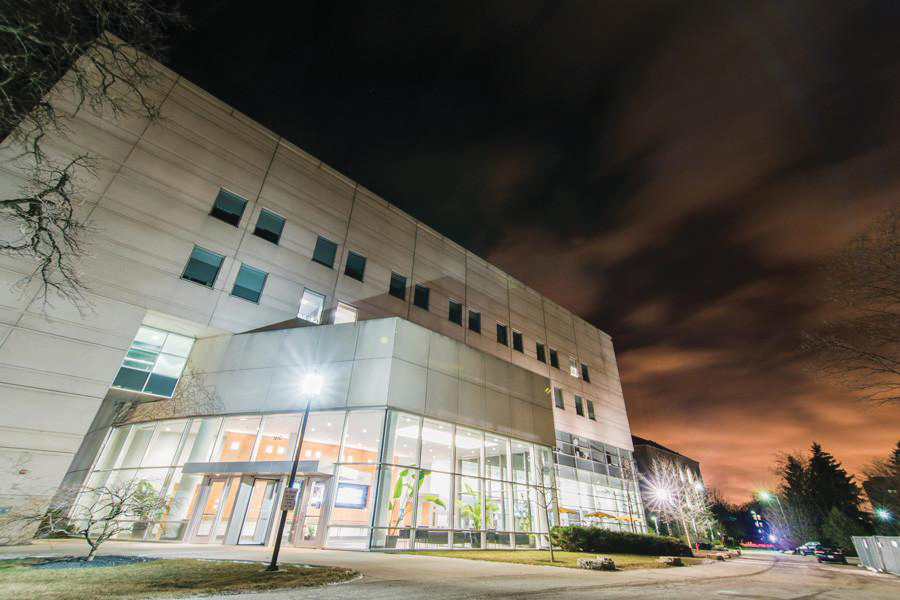Medill receives $1 million grant from McCormick Foundation to support local news
Daily file photo by Jeffery Wang
McCormick Foundation Center, home of many classes in the Medill School of Journalism, Media, Integrated Marketing Communications. Medill recently received a $1 million grant to support local news.
July 22, 2020
The Medill School of Journalism, Media, Integrated Marketing Communications received a $1 million grant from the Robert R. McCormick Foundation to support local journalism.
This money will be used to launch the Metro Media Lab, an organization that will look at how to better create and deliver local news.
“Local news has been on a downward spiral for over a decade,” Medill Dean Charles Whitaker told The Daily. “News outlets are popping up to fill this void but they need support and guidance. This grant is seed money to get us going.”
Students in the Metro Media Lab will examine where local residents are getting their news and how they are engaging with it. Whitaker said he hopes this will result in better models for delivering local news, including better storytelling techniques, solution-focused journalism and best practices for producing engaging content.
The Metro Media Lab will also train local journalists who are starting new media outlets. Whitaker said he wants this grant money to help these journalists become better business managers so their organizations are sustainable.
“It’s important for Medill not just to be a training ground for bright, young journalists,” Whitaker said. “We must also be of service to the industry that we are training those students for, particularly at this time when digital disruption has upended journalism and marketing.”
Whitaker said this grant money will also be used to encourage students in Chicago Public Schools, especially students of color, to become journalists. As a product of the school system, he wants to help students get excited about a career in journalism just like someone got him excited.
Andres Torres, a program officer for the McCormick Foundation’s Democracy Program, said he hopes the grant money will help find sustainable, far-reaching information systems. Accurate information allows residents to participate in a democracy, he said, including those who belong to marginalized communities. But Torres said finding the next sustainable information system is a challenge.
“That’s the million dollar question,” Torres said. “We don’t know what that system is, but we’re hopeful that Medill can find it with this money.”
One obstacle the Metro Media Lab faces is getting the public to engage with local news that is often negative, Whitaker said. One way to do this is with “solutions journalism,” a style of journalism Whitaker said lets journalists include possible solutions to the problems they write about. This reporting style can leave a reader feeling hopeful instead of helpless, he added.
Another obstacle is getting the public to pay for local journalism. Whitaker said the program seeks to change people’s mindsets about the value of journalism.
“We have conditioned the public to believe that journalism is like air, that it should be free,” Whitaker said. “Part of what we want to do is engage with the public, to change their mindset about the value of journalism.”
Correction: This article has been updated to reflect that while the Metro Media Lab will provide opportunities for student participation, it will not be run by students.
Email: [email protected]
Related Stories:
— Medill lecturer Arionne Nettles awarded IRE Educator of Color fellowship
— Northwestern team receives grant to develop virus-deactivating mask


